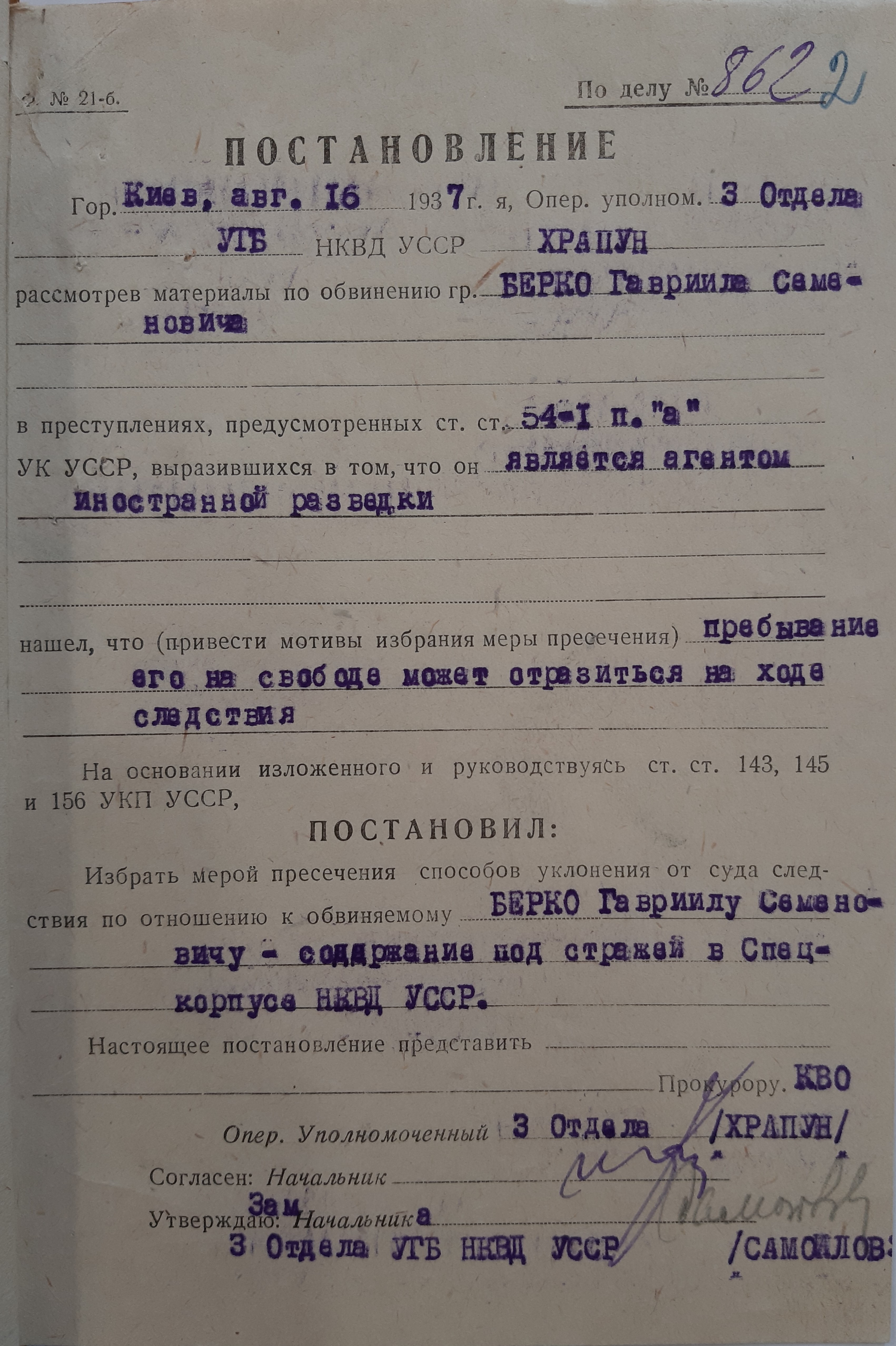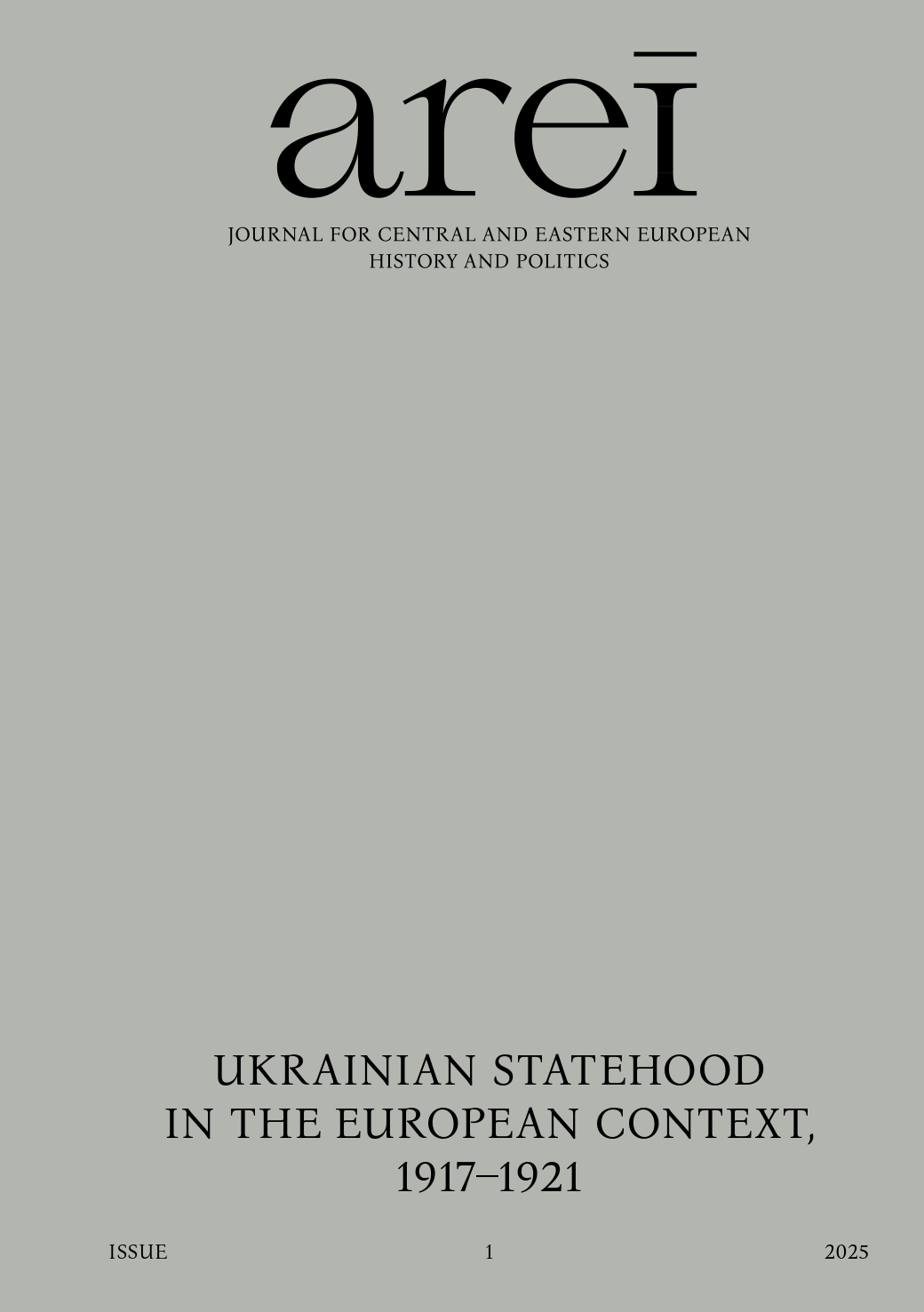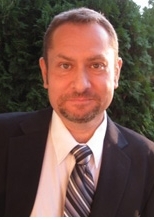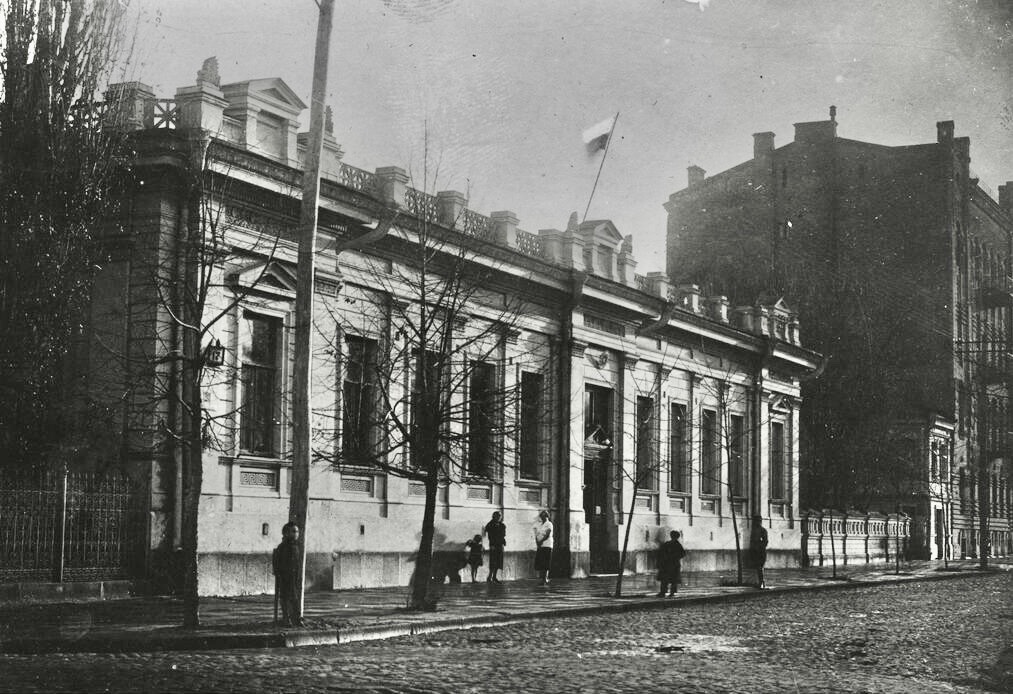We suggest to your attention a short story about how a fabricated case and the principle of collective responsibility – which the NKVD actively used in the fight against “enemies of the people” – caused the extermination of an entire family. Having started with the “purge” of the leadership of the Soviet Workers’ and Peasants’ Police, NKVD officers discovered that one of its leaders, to his misfortune, was married to a Polish woman. This fact predetermined not only his fate but also the fate of his entire Polish family. Even the fact that the militia officer himself was a native of the NKVD system did not help.
Below, we publish documents from the criminal file of Nina Berko – wife of Gavriil Berko, the former head of the special department of the Kyiv Regional Administration of the NKVD of the Ukrainian SSR, later head of the investigation department of the URCM of the NKVD of the Ukrainian SSR. In her statements and complaints, Nina Berko repeatedly pointed out the use of psychological and physical measures against her.
Initially, her husband was accused of embezzling state money for personal purposes. However, Gavriil Berko’s case was quickly and without proper grounds reclassified as political during the investigation. Gavriil Berko was accused of espionage in favour of Poland and sentenced to execution.
These events led to the arrest of Gavriil Berko’s relatives. His wife, Nina Berko, and her brother, Kazimir Olearskij, were arrested almost simultaneously. The latter was an actor of the Polish theatre in Kyiv, which the state security agencies had already taken into “development.” It was only a matter of time before participants of the Polish counter-revolutionary nationalist organization were identified there. At the time of Olearskij’s arrest, several arrested theatre actors had already testified against him, which predetermined his fate.
The arrest of her husband and brother became an “aggravating circumstance” and actual proof of Nina Berko’s guilt. Polish by nationality, Nina Berko fell under Order No. 00485 and was sentenced to the 2nd category, receiving ten years in the camps. In the 1950s, Nina Berko was rehabilitated, but her life was ruined. More details about the case of Nina Berko and her family, as well as the punishment of the perpetrators who beat her testimony out of her, will be available in above mentioned collection of documents.
Yana Prymachenko
Managing editor
DOCUMENT № 1
Interrogation Protocol of the witness Nina Vladimirovna Berko, 24 October 1958
Interrogation Protocol
24 October 1958
City of Lviv
Investigator of the KGB Investigative Department at the Council of Ministers of the Ukrainian SSR in the Lviv oblast, Junior Lieutenant Klimenko, on the current day of 24 October 1958, interrogated the witness
Nina Vladimirovna Berko
born in 1906, a native of Krakow,
Polish, a citizen of the USSR,
holding a secondary education, not party-affiliated,
previously convicted of espionage, currently unemployed,
residing at 9 Lomonosov Street, apt. 2, Lviv
Witness N.V. Berko was warned about the consequences of refusing to provide the testimony, or for knowingly providing false testimony under articles 87 and 89 of the Criminal Code of the Ukrainian SSR.
Question: The interrogation will be conducted in Russian. Do you speak Russian and do you need an interpreter?
Answer: I speak Russian well, and I do not need an interpreter.
Question: When and for what reasons was your husband, Gavriil Semenovič Berko, a former NKVD officer, arrested?
Answer: My husband, G. S. Berko, was arrested by the NKVD authorities in August 1937. At that time, my husband was an NKVD officer himself, serving as head of a department, with the rank of a Senior Lieutenant, working in Kyiv. On the day of my husband’s arrest, I was at my sister’s in Voronezh. The reasons behind his arrest are still completely unclear to me. I returned from my sister’s on August 16th, while my husband was arrested on August 15th, and none of the officers could really explain why my husband had been arrested. When I arrived at the apartment on August 16th, it was sealed, and our neighbor, Ljubovʹ Vasilʹevna Čerepenko, warned me not to get inside the apartment. I went to the building management and requested that they open the apartment door for me. Upon my request, I was given just one room in our apartment, where they had left a bed and a chair, while all other items had been sealed in other rooms. On August 21st, 1937, I was arrested by the NKVD authorities as well.
Question: When and under what circumstances did you arrive in the USSR? What was your family composition, and where do your relatives reside currently?
Answer: I moved to the USSR from Lviv. [We arrived] in Kyiv in 1915 with my entire family. Along with me came my father, Vladimir Antonovič Olearskij; my mother, Anna Petrovna Olearskaja; my sister, Galina Vladimirovna Olearskaja; my brother, Kazimir Vladimirovič Olearskij; and two other brothers, Tadeusz Vladimirovič Olearskij and Edward Vladimirovič Olearskij. I am not sure, exactly, what was the reason for us to move from Lviv to Kyiv, but I know from the stories related by my mother that our family, along with other Polish families, was relocated to Ukraine, Kyiv, by the tsarist authorities. My father, Vladimir Antonovič Olearskij, died from typhus in Kyiv, in 1920. My mother, Anna Petrovna Olearskaja, born in 1880, currently lives with me in Lviv. Both my brother, Edward Vladimirovič Olearskij, born in 1915, and my sister, Galina Vladimirovna Baraškina, reside with us in Lviv. My [other] brother, Kazimir Vladimirovič, worked as an actor at the Polish Drama Theater in Kyiv up until 1937. He was arrested by the NKVD in 1937, and his fate remains unknown until today. My middle brother, Tadeusz Vladimirovič Olearskij, born in 1912, lives in Lviv [oblast] in [the village of] Zymni Vody[1] and works as a photographer.
Question: Why did you, your mother Anna Petrovna Olearskaja, and your brother Kazimir visit the Polish embassy in Moscow and the Consulate in Kyiv? Who did they speak to at the Consulate and what was discussed?
Answer: After my father’s death in 1920, we were left with only my mother and young children in a very difficult financial situation. My mother couldn’t support our family of six on her own and decided to move to Poland, to Lviv, where her relatives lived. However, in 1921, when we received permission to leave, she couldn’t do so due to the children’s illness; in 1922, the exit visa had to be obtained through the Polish Consulate in Kyiv. For this purpose, my mother visited the Consulate in Kyiv once and was denied the exit visa, so she sent me and my older brother, Kazimir Vladimirovič, to the Polish Embassy in Moscow to seek the exit permission. My brother and I indeed went to Moscow in 1922 and were received at the Embassy, but our request was denied. After that, we didn’t pursue this issue further. I cannot say exactly who my brother spoke to at the Polish embassy.
Question: Why did you intend to leave the USSR, and how did you explain your visit to the Polish Consulate in Moscow during the preliminary interrogations?
Answer: The reason for, or rather, the intention of our family to move to Poland had to do with the difficult financial situation. My mother hoped for support from our relatives in Poland and, therefore, sought to leave. I gave the same testimony during the preliminary investigation in 1937. I don’t know what is recorded in the investigation materials, as I personally did not read them.
Question: Were you subject to criminal prosecution and arrested by the police for any crime, particularly for moonshining, between 1920 and 1925?
Answer: As I have already mentioned, there were five of us left, all minors, and it was very difficult for our mother to raise us. She sought ways of earning additional income for our upbringing and indeed, at the suggestion of our neighbor, she engaged in moonshining in 1924. When the police learned about it and searched our apartment, I took all the blame upon myself. I was charged with criminal offences and sentenced to six months in jail. I was under arrest for two months, and then I was released. I didn’t tell anyone about this, not even my husband. I testified exactly the same during the investigation, as I have just related.
Question: What do you know about the reasons behind the arrest and conviction of Kazimir Vladimirovič Olearskij for anti-Soviet nationalist activities?
Answer: My brother was arrested on August 15th, 1937. As I have already indicated, I was not at home at that time. My brother, Kazimir, worked as an actor at the Polish Drama Theater in Kyiv. I am not aware of the reasons for his arrest, and his current whereabouts are unknown to us. In response to a complaint from my mother, the KGB at the Council of Ministers of the Ukrainian SSR in Kyiv reported that they did not have any information on Kazimir Vladimirovič Olearskij.
Question: Did you have relatives in Poland before the [Great] Patriotic War? What were their occupations and where did they live? What do you know about the activities of your uncle, is he a member of the Polish defensywa[2]?
Answer: In Poland, in the city of Przemyśl, lived my father’s brother, Jan Antonovič Olearskij, who died in 1957, when he was already retired. None of our relatives served in the Polish defensywa.
Question: Who among your acquaintances can give you and your husband a reference from a political and business standpoint?
Answer: Among mine and my husband’s acquaintances, that would be retired Colonel Fedor Vasilʹevič Čerepenko, who currently resides in Kyiv at Karl Liebknecht St., 3/5. Čerepenko worked in the same department as my husband and was under my husband’s supervision; we lived next door in the same hallway. The apartment where Čerepenko now lives partially belonged to us up until 1937.
I cannot provide the names of other individuals due to the passage of time, but I think Čerepenko could name a few colleagues who knew my husband.
Question: What specific illegal investigative methods were applied to you by Samojlov, and did he witness Pugač and two other NKVD officers threatening, insulting, and physically abusing you?
Answer: My case was managed by investigator Pugač. The Head of the Third Department, Samojlov, whom I previously knew as my husband’s colleague, participated in the interrogations as well. Additionally, during the last interrogation two civilians were present; I did not know their names. After a prolonged interrogation and demands to confess that my husband, Berko, was allegedly engaged in counterrevolutionary activities, while I supposedly assisted him, Samojlov approached Pugač and started asking me why I was being stubborn, hiding my husband’s alleged hostile counterrevolutionary activity, as well as my own complicity. I told him that this accusation did not correspond to reality and asked Samojlov to appoint another investigator for my case. Samojlov immediately ordered me to be taken to another investigator, and then Pugač and the two civilians took me to an isolated room, where they again demanded confessions from me and began applying physical pressure. I don’t remember how I was brought back to the previous room. Regaining consciousness, I saw Pugač and the same two civilians by my side. After a while, Samojlov came up to me and asked how I was feeling and whether I intended to continue denying [the allegations]. He then announced that, supposedly, my husband had confessed everything a long ago, and that I was needlessly hiding his activities from the NKVD. After these statements, he told me that if I kept hiding [the information], I would be brought to a different investigator again, to the same isolated room where I fainted. He then dictated the content of a statement that I had to write regarding myself and my husband. Having become aware of all the further torment and deprivation, I thought to myself that everything would be sorted out, somehow, and wrote what was demanded of me. I don’t remember if I wrote about my husband too.
Samojlov was not present in person when I was physically abused; however, he gave the corresponding orders, since he asked me afterwards how I liked my new investigator. I have nothing to add to my testimony. The protocol has been read by me and recorded correctly. [Signed] Berko
Investigator of the KGB Investigative Department
at the Council of Ministers of the Ukrainian SSR in the Lviv oblast
Junior Lieutenant
(Klimenko)
Central State Archive of Public Organizations and Ukrainian Studies (TsDAGOU): f. 263, op. 1, d. 49928, ll. 48–54
DOCUMENT № 2
Indictment in the Case of Nina Vladimirovna Berko, 11 October 1937
INDICTMENT
In case No. 862, regarding the accusation of Nina Vladimirovna BERKO
under Article 54-6 part 1 of the Criminal Code of the Ukrainian SSR.
Approved by the Military Prosecutor of Kyiv Military District
26 November 1937 [Signature]
Nina Vladimirovna Berko was arrested on the grounds of materials received by the Third Department of the Directorate of State Security (UGB NKVD) of the Ukrainian SSR, indicating that she had arrived in Kyiv from Krakow during the imperialist war, held anti-Soviet attitudes, and visited a consulate of a foreign state.
In 1923–1924, she visited the embassy of a foreign state in Moscow, allegedly in connection with a possibility of leaving the USSR for Poland.
Her mother visited a foreign consulate in Kyiv.
In 1923–1924, she [Nina Berko] attended a military school in Kyiv and maintained connections with cadets.
Nina BERKO’s uncle, who resides in Poland, is a member of the defensywa.[1]
Her brother, Kazimir Vladimirovič OLEARSKIJ, who used to live in Kyiv, was engaged in counter-revolutionary nationalist and espionage activities (case sheets 9, 10, 11, 12, 13; packet No. 1).
Nina Vladimirovna BERKO pleaded not guilty to the charges brought against her.
NOTE: Nina Vladimirovna BERKO’s brother, Kazimir Vladimirovič OLEARSKIJ,
as well as her husband, Gavriil Semenovič Berko,
have been convicted of espionage activities
in favor of a foreign state.
In accordance with the order of the GUGB NKVD USSR № 00485,
I RULED THE FOLLOWING:
To forward case No. 863 on the charge of Nina Vladimirovna BERKO to the GUGB NKVD USSR.
ASSISTANT TO THE CHIEF OF THE THIRD DEPARTMENT OF UGB
JUNIOR LIEUTENANT OF THE STATE SECURITY (PUGAČ)
“APPROVED”
ASSISTANT TO THE CHIEF OF THE THIRD DEPARTMENT OF UGB NKVD USSR
CAPTAIN OF STATE SECURITY (SAPIR)
Compiled on October 11, 1937
Kyiv
Central State Archive of Public Organizations and Ukrainian Studies (TsDAGOU): f. 263, op. 1, d. 49928, ll. 15–16
DOCUMENT № 3
Indictment in the Case of Gavriil Semenovič Berko, 1 November 1937
Case No. 862
INDICTMENT
Against Gavriil Semenovič BERKO
under Articles 54-6 Part I and 104 Part 2 of
the Criminal Code of the Ukrainian SSR.
Approved by the Deputy of the Military Tribunal of the Kyiv Special Military District
Signed 26 November 1937
The Third Department of the State Security Directorate (UGB NKVD) of the Ukrainian SSR was informed that Gavriil Semenovič BERKO, a resident of the city of Kyiv, employee of the police force, had been engaged in espionage activities for a foreign state. Additionally, as a senior police officer with access to state funds due to his official position, he embezzled these funds for personal purposes.
As a result of the investigative actions, it has been established that in his capacity of the Head of the Investigation Department of the Directorate of the Workers’ and Peasants’ Police (URKM) attached to the NKVD of the Ukrainian SSR, G. S. Berko embezzled secret operational funds for personal purposes and allowed state funds to be spent for personal purposes by his fellow officers.
To justify his fraudulent activities, G. S. Berko produced fictitious documents (case pages 12–19).
Gavriil Semenovič BERKO stated:
“...I plead guilty to spending the funds for personal purposes, as well as facilitating the embezzlement of state funds by the Deputy Head of the URKM NKVD of the Ukrainian SSR, KUPČIK; by the Head of the Investigation Department, AUZEN; and by the authorized operative of the Investigation Department of the URKM NKVD of the Ukrainian SSR, JASTREMSKIJ. The embezzlement took place during my appointment as Head of the Investigation Department of the URKM NKVD of the Ukrainian SSR, while I had access to the funds provided by the state for the operational needs of investigative work.”
(Berko’s statement from October 10, 1937, case sheet 12).
In 1928, G. S. Berko was recruited for espionage activities by a foreign intelligence agent, Alʹbert Janovič AUZEN, who instructed G. S. Berko to collect espionage materials regarding the units of the Red Army for foreign intelligence. G. S. Berko was expected to use his official position as a staff member of the Joint State Political Directorate (OGPU) of the Ukrainian SSR. (case sheets 22, 23, 25–28.)
Upon consideration of the above, we accuse
Gavriil Semenovič BERKO, born in 1896 in Glukhiv, Chernihiv oblast; Ukrainian; citizen of the USSR; not party-affiliated; prior to the arrest – Head of the Investigative Department of the URKM NKVD of the Ukrainian SSR; senior lieutenant of the police,
Of:
1. Embezzlement of state funds for personal purposes, as well as facilitating the embezzlement thereof by his fellow senior employees during his appointment as a senior employee of the URKM NKVD of the Ukrainian SSR.
2. Acting as an agent of foreign intelligence and engaging in espionage activities in the USSR on its behalf, i.e., in crimes referenced by Articles 54-6 Part I and 104 Part 2 of the Criminal Code of the Ukrainian SSR.
[BERKO] plead partially guilty. [BERKO] was incriminated by the testimony provided by Alʹbert Janovič AUZEN.
In accordance with the order of the GUGB NKVD USSR № 00485,
I RULED THE FOLLOWING:
To forward the case No. 862 on the charge of Gavriil Semenovič BERKO to the GUGB NKVD USSR.
NOTE: Kazimir Vladimirovič Olearskij, the brother of G. S. BERKO’s wife,
was convicted of espionage.
BERKO’s wife, Nina Vladimirovna BERKO, was arrested for espionage.
ASSISTANT TO THE CHIEF OF THE THIRD DEPARTMENT OF THE UGB NKVD OF THE UKRAINIAN SSR JUNIOR LIEUTENANT OF STATE SECURITY (PUGAČ)
APPROVED: DEPUTY HEAD OF THE THIRD DEPARTMENT OF THE UGB NKVD OF THE UKRAINIAN SSR
CAPTAIN OF STATE SECURITY (SAMOJLOV)
Compiled on November 1, 1937
Kyiv.
State Archive Branch of the Security Services of Ukraine (GDA SBU): f. 6, op. 1, d. 47810fp, ll. 30–32
DOCUMENT № 4
Indictment in the Case of Kazimir Vladimirovich Olearski. No date
Approved
Signature
INDICTMENT
Investigation case No. 863 against the accused,
KAZIMIR VLADIMIROVIČ OLEARSKIJ
under Article 54-6 Part 1 of the Criminal Code of the Ukrainian SSR.
Kazimir Vladimirovič OLEARSKIJ was arrested based on information received by the Third Department of the Directorate of the State Security (UGB NKVD) of the Ukrainian SSR, indicating that he had been engaged in counter-revolutionary nationalist activities in the circles of the actors of the Polish Theater, spreading counter-revolutionary nationalist literature.
(See packet No. 1)
During the Theater’s tours in the border regions, OLEARSKIJ attempted to establish connections with locals, displaying interest in military information.
(See packet No. 1)
OLEARSKIJ’s uncle, who resides in Poland, is a member of defensywa.[1]
(see packet No. 1).
OLEARSKIJ’s sister, Nina OLEARSKA, was associated with the embassy of a foreign state.
(see packet No. 1).
According to the testimonies of the two people convicted in the case of the “Polish Military Organization”, FIALEK and KRAVECKIJ, OLEARSKIJ is a member of the Polish nationalist organization.
The accused OLEARSKIJ did not plead guilty in the charges presented to him.
NOTE: Nina OLEARSKA and her husband BERKO have been convicted on charges of espionage for a foreign state.
Guided by the order of the NKVD USSR, No. 00485 –
I RULED THE FOLLOWING:
To forward the investigation case No. 863 against the accused Kazimir Vladimirovič OLEARSKIJ to the NKVD USSR.
OPERATIONS OFFICER OF THE 3RD DEPARTMENT OF UGB NKVD USSR SERGEANT OF STATE SECURITY /LEJBOVIČ/
“APPROVED”: DEPUTY HEAD OF THE 3RD DEPARTMENT OF UGB NKVD USSR CAPTAIN OF STATE SECURITY /SAMOJLOV/
Central State Archive of Public Organizations and Ukrainian Studies (TsDAGOU):
f. 263, op. 1, d. 49893, vol. 1, ll. 20–21
[1] Polish political police.
[1] Polish political police.
[1] This is the location that appears in the text. The actual name is Zymna Voda.
[2] Polish political police.







